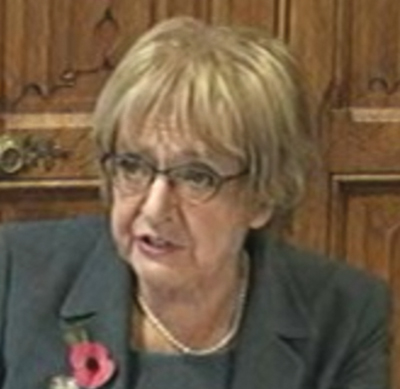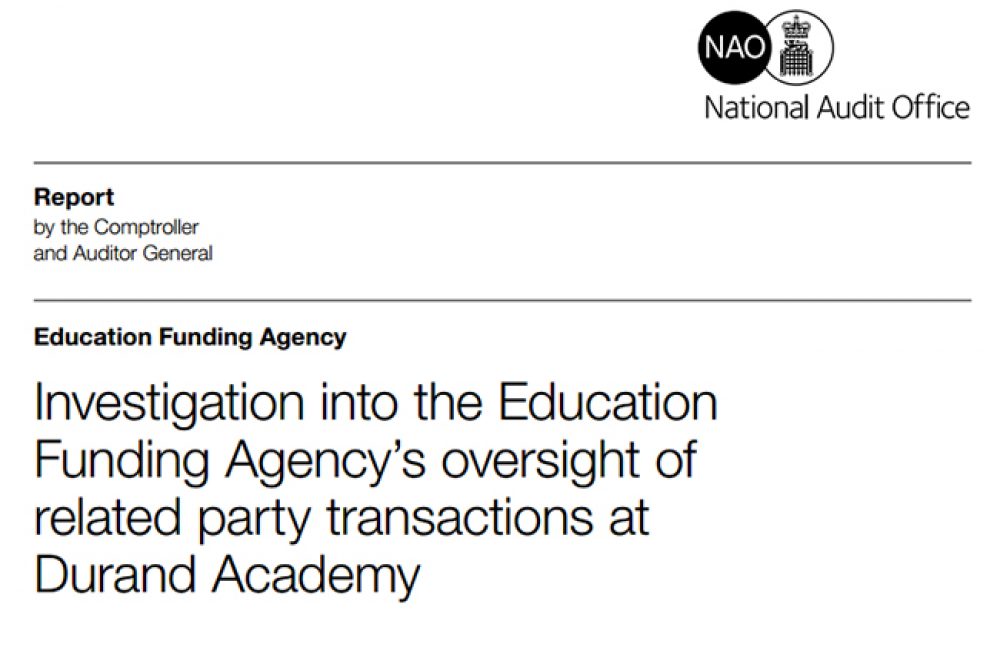The agency in charge of academy funding has been told that it must “get to grips with dubious business relationships” after an investigation into one academy trust’s finances.
The National Audit Office (NAO) today released findings into the oversight by the Education Funding Agency (EFA) of the Durand Academy Trust’s (DAT) related-party transactions and conflicts of interest (pictured). Click here to download the report.
It comes as the public accounts committee will hear evidence on Monday about the oversight of academies and maintained schools.
The NAO report describes the creation of the Durand Education Trust (DET) in May 2010. It owns most of the land and buildings the DAT sits on, and for which the DAT pays a “peppercorn rent”.
The Durand Academy did not ask the government for permission to transfer the land and buildings, and the Department for Education (DfE) did not challenge it when made aware.
The report added, among other concerns, that DET also owns a health club, swimming pool and residential property, which bring in income via a trading company, London Horizons Limited.
Margaret Hodge MP (pictured below), chair of the public accounts committee, said: “It feels just wrong that individuals sitting on the board of the DAT could set up such a complex web of organisations and companies, some of which are selling goods and services to the academy.

“It’s not at all clear if individuals within the trust were improperly benefiting from these companies.”
A spokesperson for DAT said: “The EFA has been absolutely clear that the arrangements the NAO looked into have delivered ‘significant benefits for the pupils of Durand’ and were established in good faith.
“Without these arrangements, we would not have been able to invest £8 million of our own funds over the past decade to develop new school sites to give many more children exceptional educational opportunities under the brilliant leadership of Sir Greg Martin.
“However, we agreed with the EFA to review our structures and governance six months ago, so that we remain in line with the very latest edition of the Academies Financial Handbook. As the NAO’s report confirms, many of the changes we instigated back then are already complete, or underway and nearing completion.”
A DfE spokesperson said: “We stepped in as soon as concerns emerged over Durand Academy Trust and today’s NAO report is clear that we acted promptly. As a result the trust agreed to act to ensure transparency and remove potential conflicts of interest.”
The NAO report acknowledges that the DfE updated the Academies Financial Handbook in October 2013 and added a rule that trusts can only purchase services from related parties if it is on an “at-cost” basis. This means no profit can be made from the transaction.
However, the NAO said it did so “without consulting with external auditors” and concerns were raised about how “at-cost” transactions could be audited without an agreed framework.
Lady Hodge added: “Related-party transactions are a big issue and my committee has told the EFA it needs to get to grips with some of these dubious business relationships.”
She said 43 per cent of academy trusts’ financial statements showed related-party transactions of which £8.6 million “posed a risk to value for money”.
She added: “Given its track record, I have little confidence that the agency will know if academies are complying with its new guidance on dealing with related party-transactions.”
The DfE spokesperson added: “We consulted extensively with the academy sector before the introduction of the ‘at-cost’ arrangements, and all academy trusts had the option of seeking comments from their auditors to feed into this process.”







Your thoughts